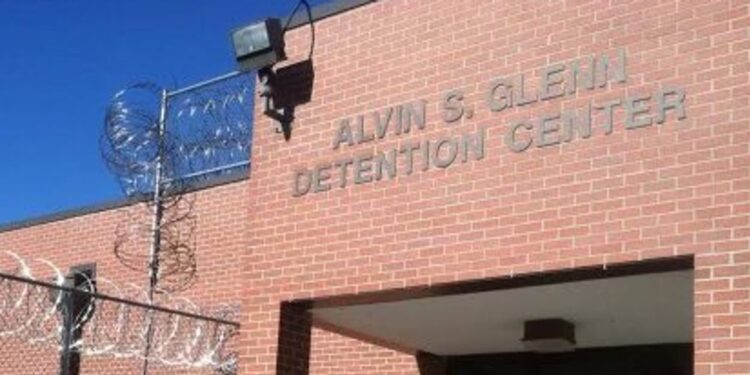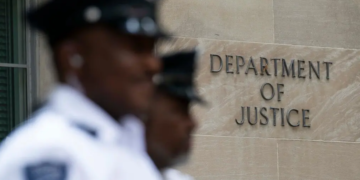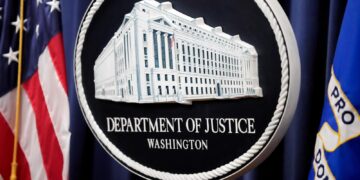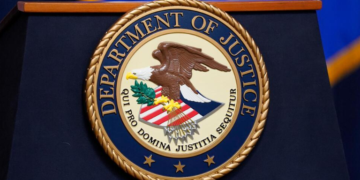Jan 19, 2025 Story by: Editor
The Justice Department has announced that conditions at the Alvin S. Glenn Detention Center in Columbia, South Carolina, breach the Eighth and 14th Amendments of the U.S. Constitution. This conclusion is based on a thorough investigation into the facility, which is managed and funded by Richland County through an Administrator and Director. The detention center currently houses approximately 965 individuals.
The department determined that both Richland County and the detention center violate the constitutional rights of incarcerated individuals. According to the findings, the jail fails to ensure reasonable safety, leaving detainees vulnerable to severe harm, including physical violence, assaults involving weapons, group attacks on single individuals, and sexual assaults.
“Incarceration in our nation’s jails should not expose a person to severe and pervasive violence like that in the Alvin S. Glenn Detention Center,” stated Assistant Attorney General Kristen Clarke of the Justice Department’s Civil Rights Division. “Most people in the jail have not been convicted of any crime — they are awaiting hearings or trial dates. They have a right to be free of violence, threats, and sexual assault. The Jail has a constitutional duty to protect people in its care from the horrific violations we uncovered here. We hope Richland County and the Alvin S. Glenn Detention Center will respond to our findings by working with the Justice Department to implement much-needed reforms.”
Echoing this sentiment, U.S. Attorney Adair F. Boroughs for the District of South Carolina emphasized the urgency of the matter, saying, “The conditions inside the Richland County jail are a matter of life and death. Individuals accused of crimes in Richland County should not face a death sentence before they ever see a courtroom. By addressing the remedial measures outlined in our findings, we believe this can change. We hope to work with Richland County and the detention center to make it a safer place for both detainees and staff.”
The investigation revealed longstanding systemic issues at the jail that have resulted in pervasive violence and preventable harm. In 2023 alone, there were at least 60 reported stabbings. Gangs exploit detainees, and the widespread presence of weapons, drugs, and contraband cell phones exacerbates gang violence and control within the facility. Staffing shortages, inadequate infrastructure, and lapses in security, such as insufficient prisoner supervision and ineffective measures to prevent contraband, further compromise safety. The jail’s leadership is reportedly aware of these conditions, which fail to meet basic constitutional standards.
The Justice Department conducted its investigation under the Civil Rights of Institutionalized Persons Act (CRIPA), empowering the Attorney General to seek court-ordered remedies for unlawful practices. Richland County and the detention center were provided with written notice of the investigation’s findings, including the steps necessary to address the violations. The department remains committed to collaborating with the county and jail officials to implement these changes.
This investigation was led by the Civil Rights Division’s Special Litigation Section in partnership with the U.S. Attorney’s Office for the District of South Carolina. The findings are part of the department’s civil investigation and are separate from any criminal cases it may pursue.
The Civil Rights Division continues to address unconstitutional conditions in correctional and juvenile justice facilities nationwide. It has launched investigations into facilities in Tennessee, California, South Carolina, and Kentucky and issued findings on prisons and jails in Mississippi, Texas, Georgia, and California. The division has also entered into agreements, including consent decrees, with facilities in Georgia, New Jersey, South Carolina, Connecticut, and Massachusetts. Additionally, ongoing litigation addresses issues such as conditions in Alabama’s men’s prisons and the extended incarceration of individuals beyond their release dates in Louisiana. Source: DOJ
















